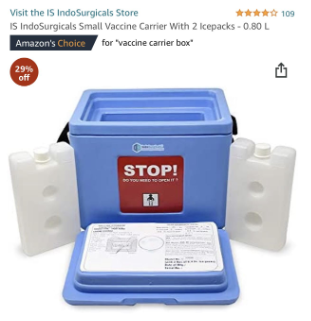What to know About Traveling with your IBD Medications
By Varada Srivastava from India
Featured photo by Oleksandr Pidvalnyi from Pexels.
Recently I travelled with my biologics for the first time internationally. The process of preparing for it, going through immigration, security, and ensuring the medication temperature was maintained was a long and confusing procedure. Through this article, I hope to help anyone planning to travel in the near future.
Since most countries started opening their borders recently after COVID-19 one of the main concerns of anyone with IBD is travelling with medication. Especially since many laws have been changed. I travelled from India to Japan at the beginning of July 2022 and this was my experience.
1. Research the medical laws of the country you’re visiting.
Japan has strict laws when it comes to opioids. My pain medication contains Tramadol so I asked my doctor to mention the exact amount of pills I’d be carrying there. This is an image of my prescription which mentions the manufacturer, dosage, the number of injections I’m carrying and it also mentions that it is a self-injection. In some countries, it is important to mention that Humira/biosimilars of Humira are supposed to be self-injected.
2. Prepare prescription documents before the flight.
It's essential to make sure all documentation regarding your disease and medications is available. The more detailed it is, the easier security checks will be.
3. Talk to the Airlines.
Most airlines allow injections to be carried on board. However, it is best to inform them beforehand. Also, let them know whether you’ll need to use the injection on the flight. My flight was booked with ANA airlines and they were very understanding about the situation.
4. Storage conditions.
Humira and other biosimilars need a maintained temperature of 2-8 degrees celsius. Make sure to carry them in an ice box or vaccine carrier. Most airlines don't keep these medications in their refrigerator due to hygiene reasons but you can ask the flight attendants for ice while on the plane.
5. Security checks.
Many people travel with injections whether it's biologics or insulin. Therefore the security is well versed in this. Check whether your medication can pass through X-ray scanners beforehand and keep the prescription handy.
It's overwhelming and scary to travel when you have IBD, hopefully following these steps might make your next travel a little bit easier.










